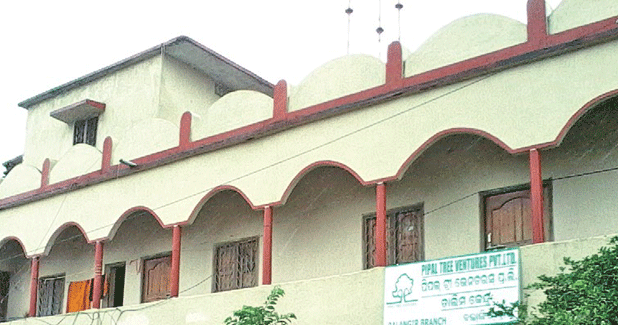
Transforming Rural Youths? Future
Started with a mission to provide vocational training for the skills in the construction industry to unemployed youths in the rural area, Pipal Tree Ventures Pvt Ltd (PTVPL) has come a long way since its inception. The organisation has set up a training hub on a 25 acre land (40,000 sq ft training campus) parcel located at Ranga Reddy district near Hyderabad. Pipal Tree currently runs 27 training centres across state of Andhra Pradesh, Bihar, Odisha, Rajasthan, Telangana, Uttar Pradesh, West Bengal, Gujarat and plans to set up 100 training centres in next 10 years. Pipal Tree has already given employment to more than 15,000 students and plans to provide employment to 100,000 youths and women in the next five years.
Overview
PTVPL?s aim is to train and give livelihood to poor unemployed rural youth in India, which in turn would help economic development of the country. Santosh Parulekar, Managing Director, PTVPL, elaborates, ?When I returned to India in 2004, after working for many years in the UK and the US, I was given an assignment by a finance company which involved extensive visits to the Indian villages. During my visits, I came across a lot of youths, who were looking for employment but had no avenues available with them to get gainfully employed. That is when I thought that the best way to create employment opportunities for them would be by training them with some skills. That is how we started this as a training organisation by the name Pipal Tree Ventures Pvt Ltd as a self-sustainable initiative and not as a trust.
Services
Pipal Tree provides trained manpower in various skills which includes plumbers, painting, electricians, mechanics, survey assistants, heavy machine operators, supervisors, etc in building and road construction. It also secures regular job work and specialty construction contracts in building construction while they only provide staffing solutions for road projects.
?We focus on skill development in infrastructure and construction?
Santosh Parulekar,
Managing Director, Pipal Tree Ventures Pvt Ltd
How do you fund for this venture?
Initially we put in our own money as equity and later IDFC also invested in equity. Now the real model is that once our students get jobs, some money from their wages is deducted each month and invested in the organisation. The risk is that when the students drop out there are losses. Student drop rate is high because when they become skilled, others offer jobs at higher salaries. So to handle the loss issue, we work with some governments and get funding from them. We have taken loans from NSDC and also take donations wherever possible. We are also trying to make the organisation self sustainable.
What are skill areas where you provide training?
We focus on infrastructure and construction. Most of the skills required in building construction like steel fixing, bar bending, shuttering centring formwork, masonry, tiling, plumbing, painting and welding. For heavy machinery, we train them on operating paver, motor grader, excavator, loader, skidsteers and trucks. We also train mechanics and electricians for maintenance of heavy machinery. We maintain our own workshops for the same. We also train supervisors and people for toll booth operations.
How have you organised your training faculty?
We have a lot of master trainers at Hyderabad. Many of them are trained at Australian universities and are certified to even train personnel in Australia. They in turn train the trainers who impart the final training to the students.
How do you identify and locate the students?
That is the most difficult part in this business model. There are many government schemes to attract the unemployed. Secondly, construction industry per say is not aspirational. Hence it is a challenge. Only students belonging to poor families join us. As such our mobilisers visit the poor villages to attract people.
What efforts you make to get your students employed after training?
Initially we were getting the students employed directly on the roles of the contractor. However, the contractors started subletting work in many tiers, which led our students being finally employed with small contractors. Here the problems of non-payment of wages and poor living or working conditions were very significant. Learning from this experience, we stared taking sub contracts in our name and assured 100 per cent employment of our students. Today larger companies like L&T are our customers. There are two models: For building construction, we take the job contract while for road construction we follow the staffing route. In case of infrastructure, we even take job contracts for small bridges and culverts.
In this model of skill development what are the three key challenges?
One challenge is to get the youth who are willing to work hard, under adverse working conditions of construction. Although women are willing to work, they are not in a position to migrate to other sites. Another challenge is that construction industry systems are not designed to encourage skill unlike the IT industry where due recognition is given to skill. Third challenge is that governments insist on academic education while skill is the practical implementation of a trade where there is no focus.


 +91-22-24193000
+91-22-24193000 Subscriber@ASAPPinfoGlobal.com
Subscriber@ASAPPinfoGlobal.com